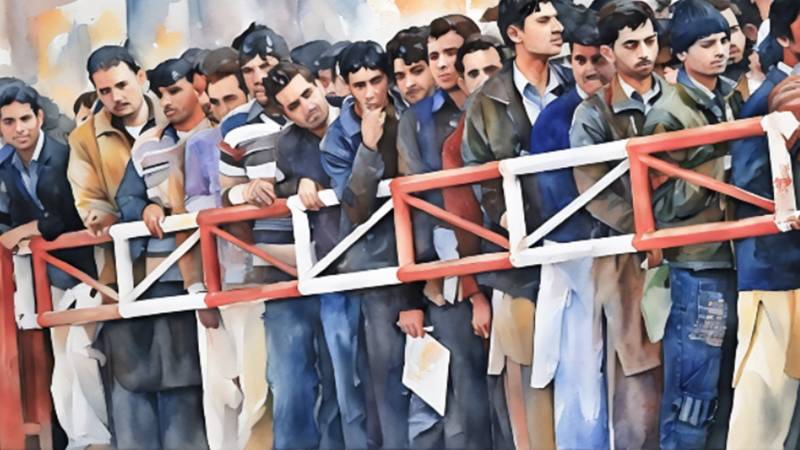
In the annals of literary history, few characters grapple with the weight of existence as profoundly as Hamlet, Shakespeare's tragic prince. His soliloquy, "To be, or not to be," encapsulates the essence of human struggle: the contemplation of morality, the allure of suicide, and the pervasive fear of the unknown. This fear, as Hamlet poignantly recognises, often outweighs the anguish of living in a world filled with injustice and despair. It compels individuals to endure humiliation, creating barriers that hinder their journeys through uncharted waters where both perils and treasures await.
In contemporary society, the conventional life—shaped by the "American Dream" and proliferated by Western media—has its roots in the Industrial Revolution. This pivotal era birthed a system designed to serve specific interests, reducing humans to mere cogs in a vast machinery of productivity. Today, as artificial intelligence looms on the horizon, this mechanistic view of humanity feels increasingly threatened. Yet, this relentless pursuit of financial gain and the illusion of success dates back further, perhaps stemming from an innate human fear of inadequacy and a deep instinct for survival. As a result, many individuals find themselves trapped in a vicious cycle, initiating at birth and culminating in the relentless demands of education, career, marriage, and parenting. This cycle continues until death, leaving countless people to traverse life without ever grasping its true purpose.
To break free from these constraints, fostering a culture of experimentation and critical thinking is essential. Initiatives like art festivals and innovation hubs, such as the National Incubation Centre, are steps in the right direction
This theme echoes in Oriana Fallaci’s poignant novel, A Letter to a Child Who Was Never Born. Fallaci articulates the profound influence a parent has over a child's thoughts and choices, unmasking the inherent biases embedded in the role of parenthood. Similarly, Imtiaz Ali’s introspective film, Tamasha, depicts a protagonist who, faced with his inner voice, reexamines his career choices and confronts his mediocrity and depression. In this journey of self-discovery, he learns that pursuing his dreams—free from societal competition—is essential for his happiness. These narratives highlight the critical need for individuals to confront their fears and embrace their authentic selves, rather than merely conforming to societal expectations.
Those who dare to tread alternative paths and confront their fear of failure often lead extraordinary lives, leaving indelible marks on history. Winston Churchill once remarked, "History is written by the victors". However, paradoxically, they are the ones who martyred the real heroes thereby making the status of figures like Columbus as a hero, debatable. Nevertheless, his discovery of a new world undeniably has left imprints on navigation; and reshaped geopolitics and our understanding of the world.
Unfortunately, this struggle for self-actualisation is starkly evident in Pakistan, where the youth face a staggering depression and suicide rate—one of the highest globally. This crisis is rooted in societal pressure to conform to traditional career paths, coupled with a glaring lack of opportunities to nurture individual potential. As a result, many young people feel trapped in a system that stifles creativity and happiness, contributing to Pakistan’s low ranking in global happiness indices.
Conformity, driven by a quest for religious contentment, has profoundly stifled progress in regions like South Asia, especially Pakistan, leading to a notable absence of significant scientific innovations over the past millennium. This cultural phenomenon extends to various aspects of society, curtailing entrepreneurship and creative expression. For instance, the fear of deviation from established norms often leads to artists and writers producing predictable, formulaic works, as seen in much of contemporary literature and theatre, where innovation is scarce.
In the arts, this climate of apprehension perpetuates superficial explorations of human emotions, resulting in productions that fail to resonate deeply with audiences. The preference for safer themes restricts the potential for profound societal commentary, limiting the artistic landscape.
Moreover, institutionalised discouragement, combined with humanity’s innate envy, fuels an insatiable pursuit of wealth. This mindset commodifies aspects of life, including happiness, as seen in the prioritisation of material success over personal fulfilment. The rise of social media influencers in Pakistan exemplifies this trend, where followers often equate happiness with consumerism and status rather than genuine well-being.
To break free from these constraints, fostering a culture of experimentation and critical thinking is essential. Initiatives like art festivals and innovation hubs, such as the National Incubation Centre, are steps in the right direction. By embracing diverse perspectives and nurturing creativity, society can pave the way for a more vibrant future, where human potential is valued beyond mere economic metrics, enabling a richer, more meaningful exploration of life. Rousseau aptly stated, "Man is born free, yet everywhere he is in chains." This sentiment resonates deeply in today's context, where economic necessities and harsh realities create invisible shackles. Yet, the pursuit of new horizons—whether through education, art, or entrepreneurship—can foster personal and collective growth.
To conclude, history is replete with examples of those who broke free from societal constraints and discovered profound fulfilment. From artists who defied conventions to thinkers who challenged the status quo, these individuals illuminate the path forward.

